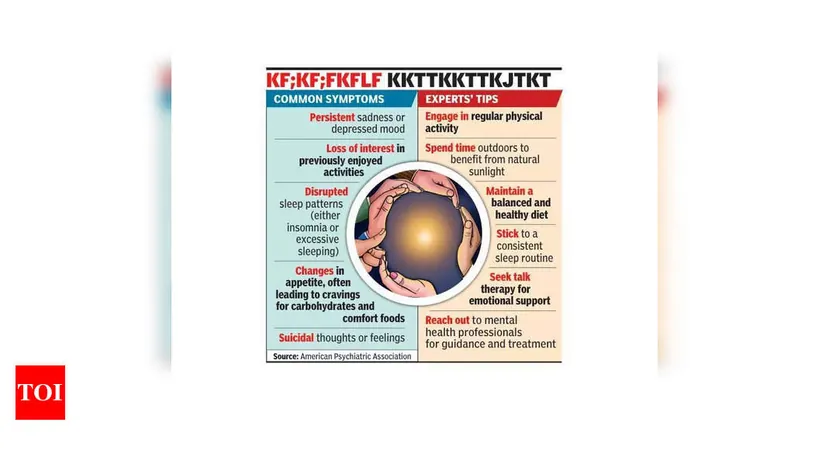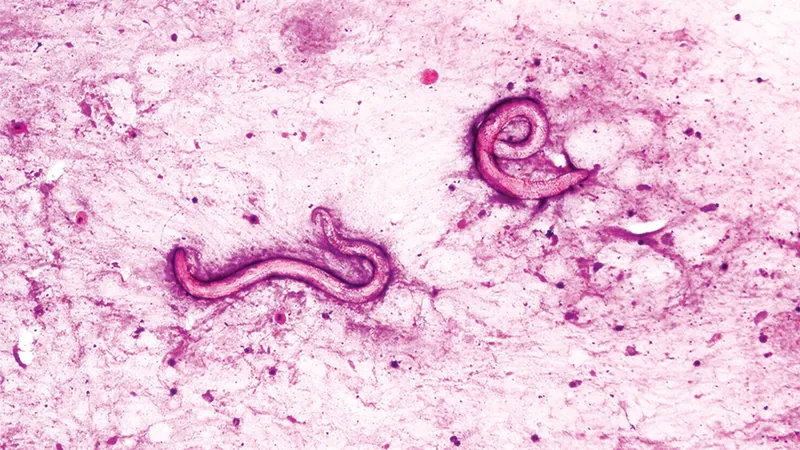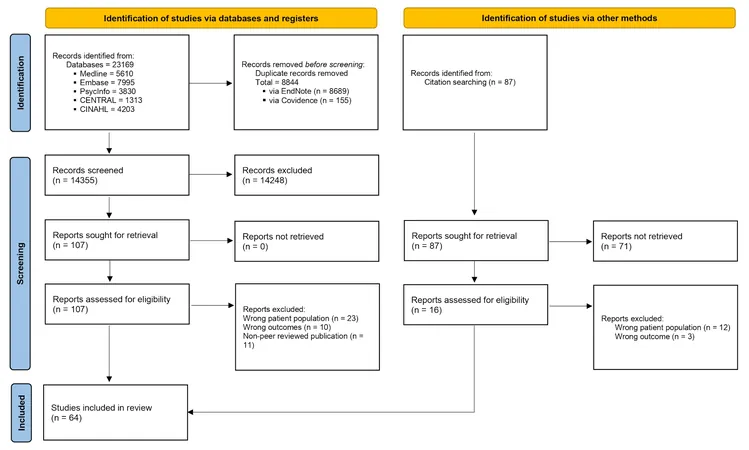
Battling the Winter Blues: The Chilling Impact on Mental Health
2025-01-11
Author: Nur
Introduction
As the cold winds of winter sweep across the globe, a silent struggle begins for many individuals: the winter blues. The phenomenon known as Seasonal Affective Disorder (SAD) has been increasingly recognized as a serious condition that affects a substantial portion of the population during the chilly months. Health experts warn that this seasonal change isn't just harsh on our physical health; it can lead to significant mental health challenges, amplifying feelings of sadness and isolation.
The Impact of Winter on Mental Health
According to Dr. Santosh Kumar, head of the psychiatry department at Nalanda Medical College and Hospital, winter often brings about a notable decline in energy levels and general interest in daily activities. "For those fighting depression or bipolar disorder, the winter months can intensify their symptoms," he explained. The primary culprit? A lack of sunlight that reduces the production of vital brain chemicals. “While the exact reasons remain unclear, the absence of natural light is believed to interfere with our brain's chemistry,” Dr. Kumar added.
Vitamin D and Circadian Rhythm
Senior psychologist Dr. Niska Sinha from IGIMS also correlates winter struggles with decreased sunlight exposure, which contributes to lower vitamin D levels—a nutrient crucial for mood regulation. "Reduced daylight disrupts our body's circadian rhythm, negatively impacting neurotransmitters such as serotonin. This can result in mood swings and increased anxiety," she noted. This societal phenomenon is not merely a personal struggle; it reflects a collective distress as social interactions dwindle during the colder months.
Feelings of Isolation
Moreover, the winter season often exacerbates feelings of isolation. Limited opportunities for outdoor activities and reduced social gatherings can heighten loneliness. Relationship tensions may also surface, as individuals attempt to balance personal space with social needs, leading to increased inquiries to mental health professionals.
Proactive Measures
To combat these winter-induced mental health issues, experts like Dr. Sinha advocate for proactive measures. Bright light therapy, cognitive behavioral therapy (CBT), and developing a structured activity schedule can all make a difference. "Engaging in enjoyable hobbies, practicing meditation, and maintaining connections with friends and family despite the frigid weather are vital steps," she recommends. Additionally, prioritizing vitamin D intake, whether through sunlight or supplements, and invigorating outdoor exercises such as yoga can further mitigate depressive symptoms.
Trends in Mental Health
Psychologist Dr. Binda Singh shares a disheartening trend: nearly half of her patients during winter report symptoms related to depression, anxiety, and mood fluctuations due to SAD. “A sedentary lifestyle often breeds negative thought patterns, disturbed sleep, and avoidance of physical exercise,” she warns. It is important to debunk myths—such as dietary restrictions on fruits during winter—that only contribute to unnecessary stress.
Women and Vulnerability
Dr. Singh points out that women may face heightened vulnerability during these months, often due to the additional pressures of managing both work and home life. "Women are particularly susceptible to feeling isolated. The challenge of juggling multiple responsibilities can take a significant toll on mental well-being," she stated.
Conclusion
In conclusion, while winter can bring about its share of beauty and serenity, the mental health implications are profound. It is crucial for individuals to recognize the signs of seasonal depression and seek help if needed. Whether it’s through professional support or adopting self-care practices, combating the winter blues requires both awareness and proactive measures. So, as the temperatures drop, let’s commit to lifting each other and ourselves above the icy grasp of SAD.






 Brasil (PT)
Brasil (PT)
 Canada (EN)
Canada (EN)
 Chile (ES)
Chile (ES)
 Česko (CS)
Česko (CS)
 대한민국 (KO)
대한민국 (KO)
 España (ES)
España (ES)
 France (FR)
France (FR)
 Hong Kong (EN)
Hong Kong (EN)
 Italia (IT)
Italia (IT)
 日本 (JA)
日本 (JA)
 Magyarország (HU)
Magyarország (HU)
 Norge (NO)
Norge (NO)
 Polska (PL)
Polska (PL)
 Schweiz (DE)
Schweiz (DE)
 Singapore (EN)
Singapore (EN)
 Sverige (SV)
Sverige (SV)
 Suomi (FI)
Suomi (FI)
 Türkiye (TR)
Türkiye (TR)
 الإمارات العربية المتحدة (AR)
الإمارات العربية المتحدة (AR)